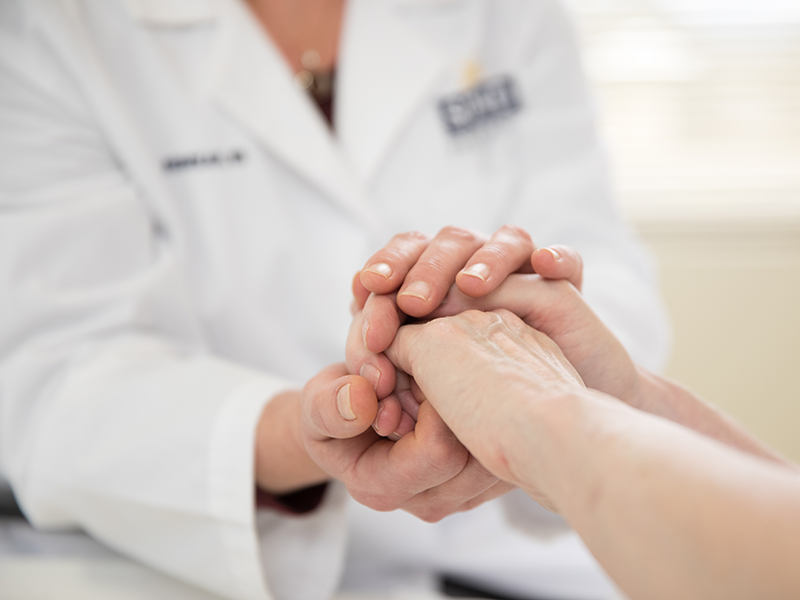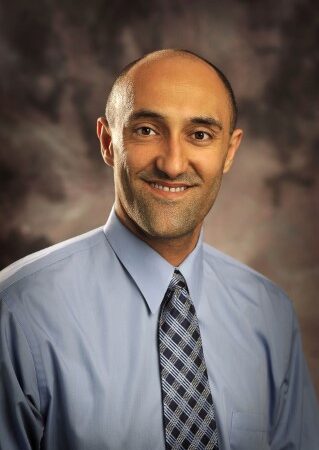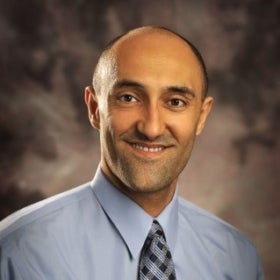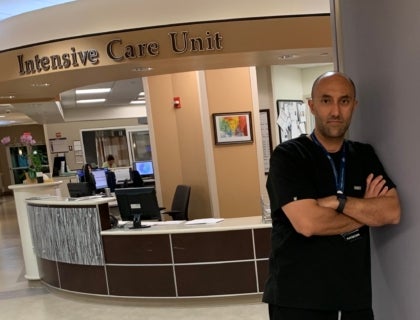June 15, 2017
Listen, I Know How You Feel

“Listen, I know how you feel.” I am sure that many grieving families in the intensive care unit have scoffed, either openly or secretly, when they heard a physician say that sentence when faced with the imminent death of their loved one. I am sure that, in their minds, they were saying, “How do you know how I feel?” Indeed, we try hard to be as empathetic as possible, especially in the ICU, where I work as Intensivist and Medical Director. Yet, in my case, I really do know how these families feel. I lost my daughter in June 2009. My eldest daughter was diagnosed with Ataxia-Telangiectasia (A-T), an autosomal recessive disorder characterized by progressive cerebellar ataxia and cellular/humoral immunodeficiency, at the age of six. Most kids with A-T are in a wheelchair by the age of ten, and they rarely survive their teens, succumbing to either infection or malignancy. Our daughter had the most severe phenotype of this disorder: she was indeed wheelchair-bound by the age of ten, and she was plagued by almost constant bacterial infection. She was even on chronic, suppressive antibiotics for the last two years of her life. At the age of 12, she was diagnosed with diffuse large B-cell lymphoma, and it was already widely disseminated at the time of diagnosis. Thus, we embarked on a modified chemotherapeutic regimen, as children with A-T are more susceptible to the effects of chemotherapy due to the underlying DNA repair defect. And it was a grueling six months, with my wife and me “tag-teaming” various hospital stays and oncologist visits. There were many a time I took overnight call at the bedside of my daughter in the hospital. Finally, at the end of May 2009, came the “maintenance” phase: the easiest and last cycle. We were greatly relieved, and we looked forward to a great summer without chemotherapy and its side effects, without hospitals, without oncologist visits. Horrifically, it would never come to pass. During that cycle, everything that could go wrong went wrong. The methotrexate would not leave her system; she had relentless mucositis and diarrhea; she had terrible pain, so much so that she knew “Dilaudid” by name. No 12-year-old should know “Dilaudid” by name. Then, the fevers started and would not stop. Despite multiple antibiotics, administered early, the fevers would not stop. Saturday morning, June 8, something changed: it is when the E. Coli got into her bloodstream. She developed septic shock and multi-organ failure. She had to be transferred to a tertiary center for possible hemodialysis. It never happened because, by 12 PM the next day, she had died. Losing a child has been the most horrific thing I could have ever endured. I knew, way back when she was diagnosed with A-T, that I would eventually have to face that day. I even played the movie of her death in my mind dozens of times. When I was finally faced with it, however, it was too much to bear, and I broke down in devastation. It has not been easy, especially having to work in a very similar environment in which my daughter died. But, I have to move on: too many people depend on me, and thus I cannot afford to give up. And so, when I see patients’ families struggling with the imminent death of their loved one, I share my story. I tell them that I truly do know how they feel: I lost my daughter in an ICU very similar to this one, and that I know how hard it is. I try to counsel them that it will hurt…hurt a lot. But, if their loved one can pass in dignity – with family and friends around them – it is the best possible outcome, just like with my daughter. Without exception, the patients’ families are grateful. They express their sympathy – for which I am not looking – but it also seems to make their pain a little easier to bear. I think this happens because, when I reveal such a painful fact of my own life, the emotional guard that they are putting up between them and me – the stranger – comes down, and they see that I am a grieving family member just like them. Moreover, they perhaps see that losing their loved one is not the end of the world: I am here, alive and seemingly well, in the ICU, even though I lost my own child to critical illness. Once, after I shared my story and told a son and daughter that I understand that letting go is difficult, they broke down in tears. But, it also helped them cope with the loss of their mother. That I could help them through this terrible time in their lives made me feel all the better as well. I would never wish losing a child on anyone. The grief, at times, is so suffocating that I cannot breathe. And, thankfully, most of us healthcare providers have not had to endure such a horrible tragedy. Does that mean that we cannot be empathetic to families losing their loved ones in the hospital? No, of course not. But one thing I would say is this: sometimes, there is nothing that can be said. If you haven’t gone through this type of painful tragedy, then you really don’t know what it is like. I would start by acknowledging this. I think it is perfectly acceptable to say, “I have never been through this type of tragedy, and so I understand that I cannot truly know how you feel.” But, sometimes, people going through this type of tragedy don’t need words. When they were putting dirt on my daughter’s pink and white casket, I was overcome with grief at the side of her grave. And I lost it. What helped me the most was my friend coming up from behind me and holding my hand. I will never forget it as long as I live and breathe. I suggest that’s what we should do as clinicians who haven’t been through such similar suffering: offer our hands – and sometimes shoulders – to our patients’ families for support and comfort. It is more powerful and helpful than we may realize, and I am confident our patients’ families will be forever grateful to our genuine show of care and compassion. We have been trained to cure everyone, to prevent every person with whom we come in contact from dying. Most of the time, thankfully, we are successful. There are times when we are not. Learning how to help those left in the wake of illness’s devastation is just as important as curing the underlying illness. And we don’t have to have had the personal tragedy to make an impact.






